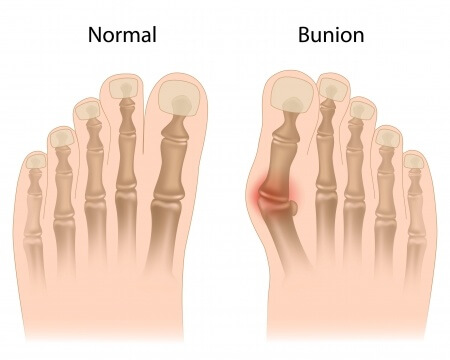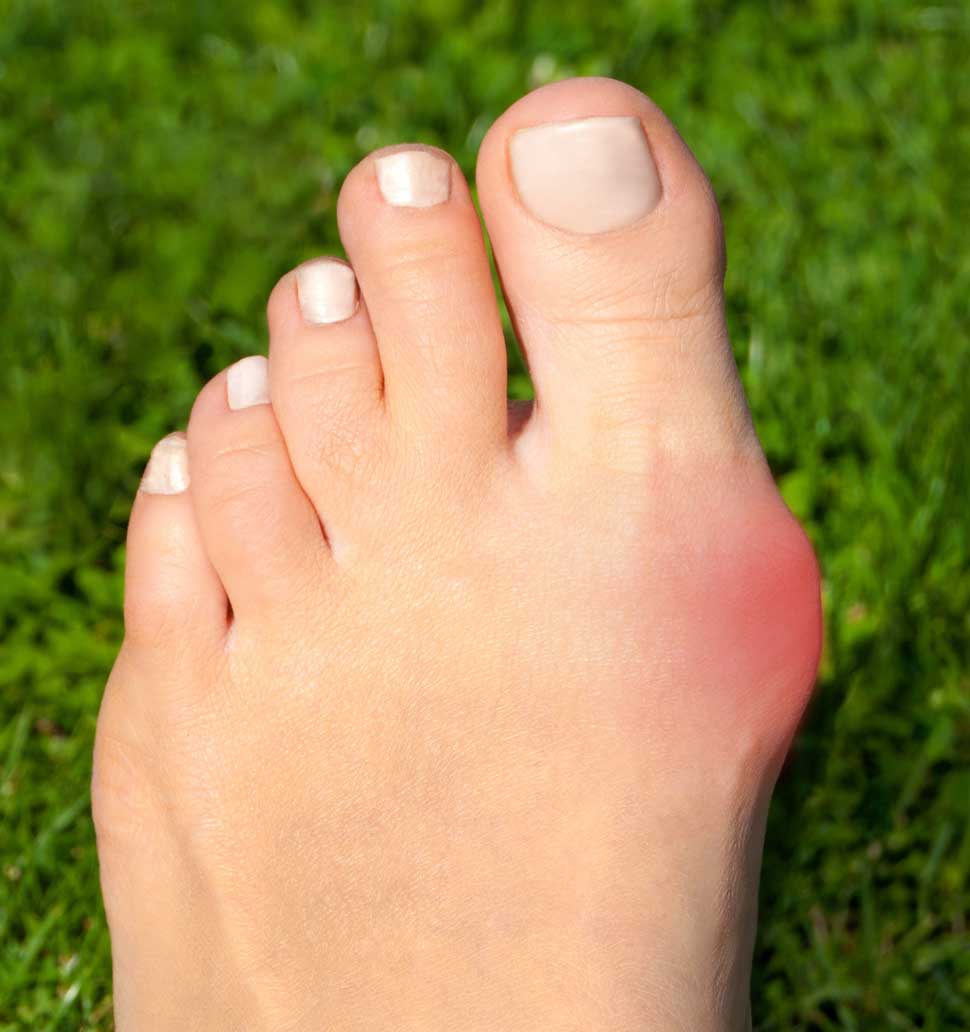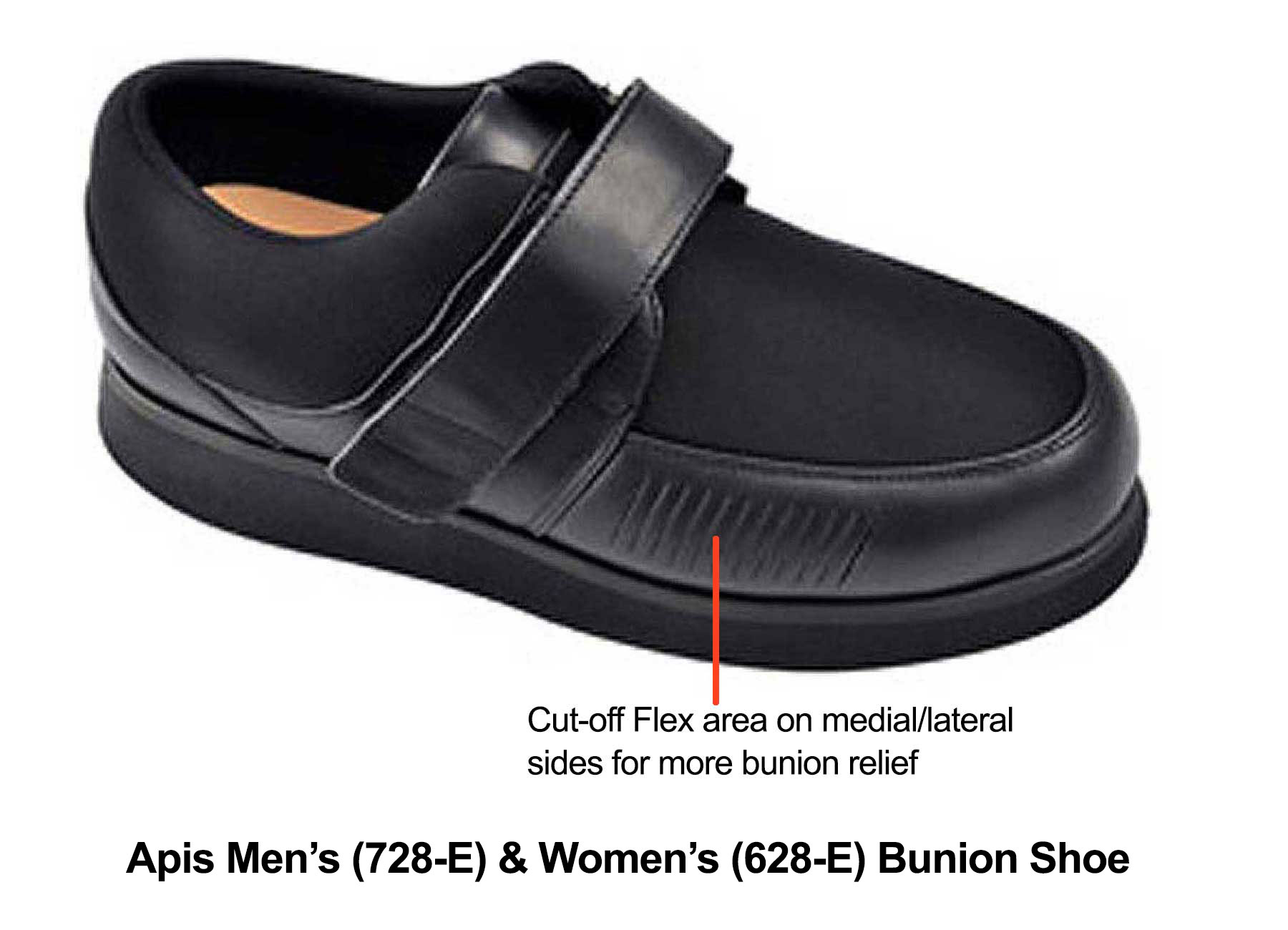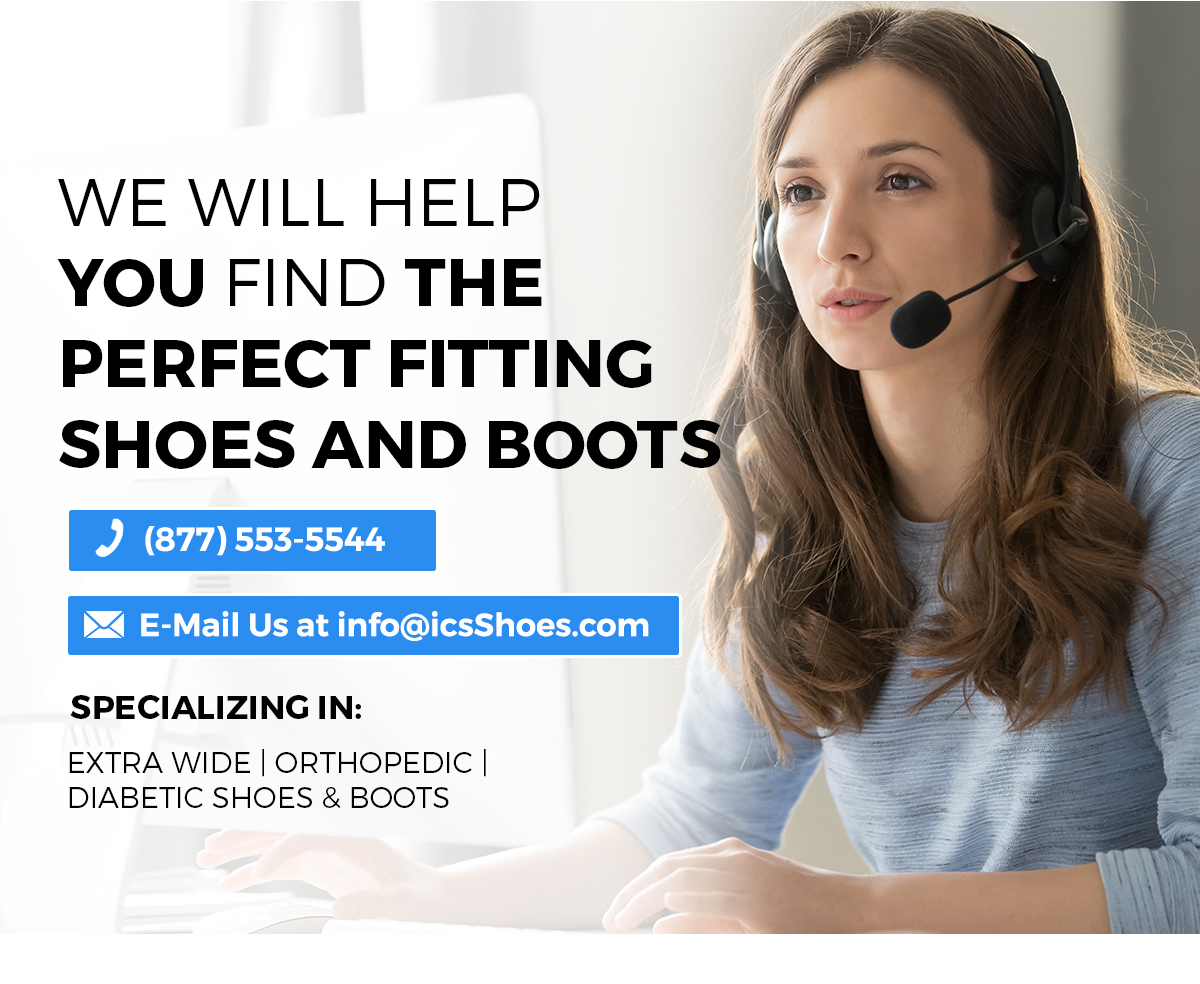Bunions, those bony protrusions at the base of the big toe, are more than just a cosmetic concern; they are a reflection of changes in the structure of the foot. While surgery is a common recommendation for severe cases, many people seek non-surgical ways to alleviate the discomfort and halt the progression of this condition. In this blog, we’ll explore the causes of bunions and discuss various non-surgical treatments available.

Understanding Bunions
A bunion, medically known as hallux valgus, occurs when the first metatarsal bone of the foot turns outward, and the big toe points inward toward the other toes. This misalignment creates the characteristic bump. Several factors contribute to this deformity:
- Genetics: A family history of bunions increases your risk.
- Footwear: Tight, narrow, or high-heeled shoes that crowd the toes can exacerbate the problem.
- Foot Stress: Occupations or activities that put excessive stress on the feet.
- Arthritis: Conditions like rheumatoid arthritis can increase bunion risk.
- Foot Structure: Flat feet, excessive flexibility, or abnormal bone structure can be contributing factors.
Non-Surgical Treatment Options
- Improved Footwear Choices:
Why It Matters: Tight shoes can exacerbate bunions by forcing the toes into an unnatural position. Comfortable footwear helps alleviate pressure on the bunion.
 What to Look For: Seek shoes with a wide toe box, soft leather uppers, fabric or stretch fabric uppers, and adjustable straps or laces for a comfortable fit. Avoid pointed toes and high heels over two inches.
What to Look For: Seek shoes with a wide toe box, soft leather uppers, fabric or stretch fabric uppers, and adjustable straps or laces for a comfortable fit. Avoid pointed toes and high heels over two inches.
Pro Tip: Have your feet measured regularly, as foot size can change over time.
- Orthotic Devices:
Custom vs. Over-the-Counter: Custom orthotics are designed to fit the contours of your feet precisely, providing targeted support and relief. Over-the-counter options can also be effective and are more budget-friendly.
Benefits: Orthotics help distribute pressure evenly across the foot, reducing strain on the bunion area.
- Padding and Taping:
Bunion Pads: These cushioning pads can be placed over the bunion to reduce pain from friction and pressure. Look for non-medicated, adhesive pads.
Corrective Taping: This involves wrapping the foot in a way that corrects its alignment. This should be demonstrated by a healthcare professional to ensure proper technique.
- Medications for Pain and Inflammation:
NSAIDs: Ibuprofen and naproxen are common choices. Always follow the recommended dosage and consult a doctor, especially if taking them regularly.
Topical Medications: Some find relief with creams or gels applied directly to the bunion.
- Cold Therapy:
Application: Use a cloth-covered ice pack on the affected area for about 20 minutes, several times a day.
Caution: Never apply ice directly to the skin.
- Targeted Foot Exercises:
Toe Stretches: Gently pull your toes back towards your ankle.
Toe Flexing and Contracting: Practice curling your toes, then straightening them out.
Ball Rolls: Roll a small ball under the arch of your foot for a gentle massage.

- Weight Management:
Impact of Excess Weight: Additional weight can increase the stress on your feet, exacerbating bunion pain.
Healthy Lifestyle: A balanced diet and regular exercise can help in maintaining an ideal weight.
- Night Splints:
Functionality: These splints can help to realign the big toe and relieve discomfort.
Consistency: For the best results, use as directed consistently.
- Additional Tips:
Regular Foot Inspections: Regularly check your feet for changes or signs of progression in the bunion.
Warm Soaks: Soaking your feet in warm water can help relieve pain and stiffness.
Massage: Gently massaging the affected area can increase blood flow and reduce discomfort.
Consulting a Specialist: A podiatrist can provide personalized advice and treatment options, including physical therapy if needed.
The Best Shoes & Boots for Bunions
Apis is renowned for its comfortable and supportive footwear. Apis shoes specializes in Extra Wide Widths while also complying to diabetic shoe standards.
Drew Shoes are known for their "Plus Fitting System" which feature Double Depth and include 2 Dual Density Removable insoles. Many of the Drew Shoes are waterproof to keep your feet dry and warm. Drew Shoes also include Padded Tongue, Foam Cushioned Collar, Broad Toe Box to enhance the comfort and support.
Propet is located in Washington state and provide a wide variety of winter shoes & boots. Many of the Propet shoes & boots are made for harsh winters. Features include Waterproof, Non-Slip & insulated interiors.
Dr Comfort is one of the pioneers in the Diabetic Shoe space. Their shoes feature seamless interiors and exceptional comfort and support. Dr Comfort also provides seamless socks including a variety of styles including their unique Extra Roomy socks for people with large calfs. ICS Shoes recommends wearing the Dr Comfort socks with all your shoes.
I-Runner offers a quality selection of Medicare-certified diabetic shoes with seamless interiors as well phenomenal heat-moldable insoles. I-Runner shoes feature: Seamless Interiors, Wide & Deep Toe Box, Padded Toungue, Padded Heel, Room for Custom Insoles and Spacers.
Xelero shoes “improve people’s lives” by offering an appropriate foot environment by supporting the foot structures and improving gait biomechanics during heel contact, midstance, and propulsion.
Apex shoes feature a soft, moisture-wicking lining with non-exposed seams that helps keep feet comfortable, dry and safe from irritation, eliminating pressure on the forefoot and toes. Many of the Apex shoes are available in extended widths and extra depth.
The primary focus of the OrthoFeet brand is to offer the ultimate comfortable and functional shoes and orthotic insoles. By combining athletic footwear technology and therapeutic detailing, OrthoFeet footwear offer shoes with seamless interiors with the highest level of comfort and protection for sensitive feet.
Managing bunions without surgery involves a combination of proper footwear, orthotics, padding, medications, and lifestyle adjustments. It’s a holistic approach that focuses on relieving pain, reducing pressure on the bunion, and preventing further progression of the deformity. Regular consultations with a healthcare professional are crucial to monitor the condition and adjust treatments as necessary. Remember, every foot is unique, and what works for one person may not work for another, so personalized care is key.
Remember, the right footwear can make all the difference in aleviating foot pain.

ICS Shoe Personal Fitting Specialists can help you find the Perfect Fitting shoes & boots to eliminate pain and discomfort. Taking care of your feet every day starts with the perfect fitting shoe.
Let us help you find just the right shoe for your lifestyle. Contact Your Personal Fitting Specialist Today - Your Feet Will Thank You!
(877) 553-5544 or
Contact Us by eMail.